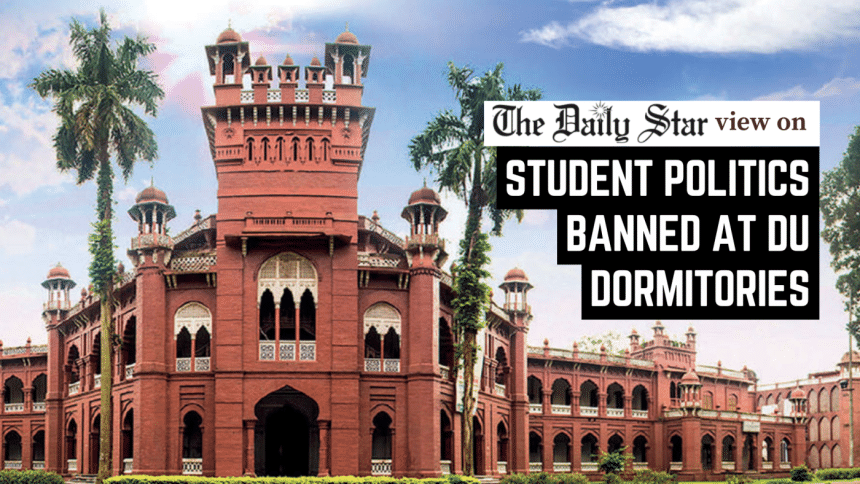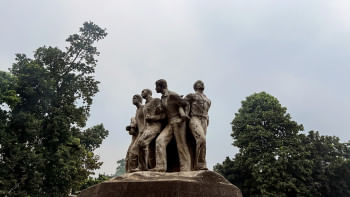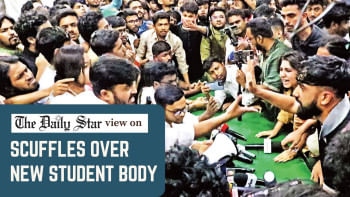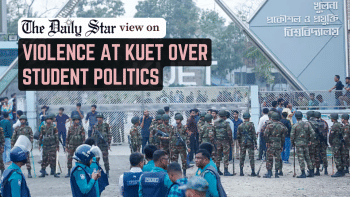Banning hall politics may not be the answer

The sudden decision by Dhaka University to uphold a ban on all forms of student politics within the residential halls—as declared by its proctor in the early hours of Saturday—reflects the tendency of knee-jerk reactions by university authorities whenever a crisis emerges, rather than a willingness to find solutions through dialogue. Reportedly, students began protesting after the announcement of hall committees by the DU Jatiotabadi Chatra Dal (JCD) convening body. They rejected the vice-chancellor's call to initiate discussions with student organisations to reach a consensus on hall politics, and continued their protests. This prompted the proctor to announce that all types of hall politics would be banned.
The protests are understandable, given the terrifying legacy of Bangladesh Chhatra League (BCL) and other ruling party wings before it, which carried out all kinds of abuses in the halls in the name of politics. After the BCL's violent attack on the quota reform protesters on July 15, 2024 and the subsequent protests in the halls, the administration had declared a ban on all politics in the halls on July 17, 2024. The demands of student protesters to remove hall-based domination were valid. At present, no one wants a revival of the past, when students were coerced into joining BCL and punished if they refused to comply with the student wing's leaders.
But the current administration's buckling under late-night protests without involving stakeholders will not yield long-term solutions. It is also baffling how a ban on "covert" political activities can be enforced. As some student leaders have noted, banning visible, declared student groups will allow certain factions operating under a façade of neutrality to gain an unfair advantage, undermining the level playing field ahead of DUCSU elections. It may also result in a return to the old tradition of hall domination by a particular group.
The goal should not be to ban politics on campus, but to ensure that it fosters democratic practices and values among students. Student politics is an enduring reality of our campuses. Historically, student movements have played critical roles in social and political change, including the July uprising of 2024 which was led by students. We must ensure that student political groups serve the interests of all students, not just their own cliques. These groups must be held to clear standards with zero tolerance for violence, intimidation, control of the halls, or undue influence over university affairs. The university authorities should create a forum where student organisations, general students, legal experts, and officials can collectively decide how politics should function on campus.
Most importantly, the university administration must be committed to being strong, independent, and free from any kind of political bias. Only then can student politics be healthy and free from the toxicity of the past.


 For all latest news, follow The Daily Star's Google News channel.
For all latest news, follow The Daily Star's Google News channel. 










Comments